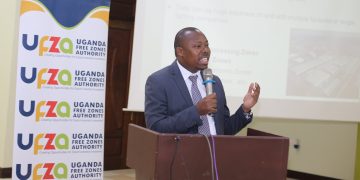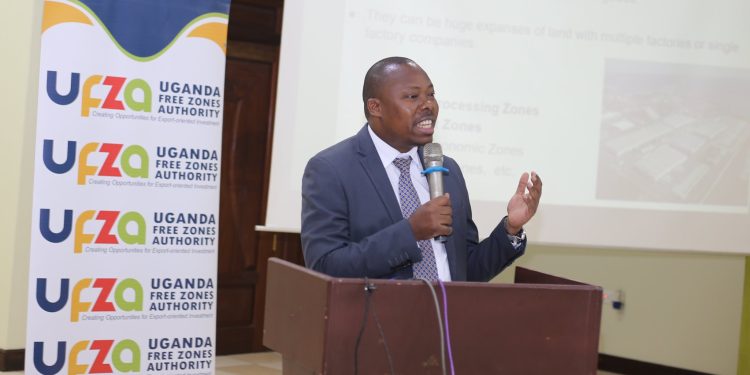Officials from the Uganda Free Zones Authority (UFZA) have asked government and the relevant government agencies to expand and include more non-fiscal incentives compared to fiscal incentives given to investors.
Speaking at a breakfast meeting in Kampala, Rebecca Nalumu, the Director Business Development at UFZA, said that non-fiscal incentives once provided, will contribute to almost 80 percent that muscle production.
“If I may give an example of the top three challenges that affect the operations in Uganda, they are electricity, transport and land. So, if those are addressed, then it means that it will bring down the cost of production by almost 80% of the final product that you are going to sell in the financial markets,” she said.
She revealed that with the current operations, Free Zones still have challenges of high cost of electricity, transport costs, among others, noting that these contribute to the final costs of production and the final cost of the product which is sold in the international market.

She noted that the non-fiscal incentives will enable the products that are being manufactured in Uganda in this free zone specifically to be able to compete on price and also the quality.
“Now we are evolving to ensure that we provide those ready made services cheaply and more affordable so as to attract more Ugandans into export-oriented manufacturing activities. We want them to make the products that are made in Uganda specifically in this free zone, we make it affordable but we also have the market presence of products that are manufactured in this free zone,” she said.
She further explained that this will make a difference on pricing, attract more investments in the free zones, and create more job opportunities.
“We shall have more export earnings, more foreign exchange earnings and the other benefits like technology and scaling. It means more investments, more benefits that come out of all these reasons, more backward linkages and more market opportunities for those who are supplying their products into the free zone.”
Speaking at the same meeting, Hez Kimoomi Aliinda, the Executive Director UFZA, said transition from the fiscal incentives to also include the non-fiscal incentive will make the Free Zone scheme more competitive for investment.
The Uganda Free Zones Authority is a government agency established by the Free Zones Act, 2014 for the purpose of creating opportunities for export oriented investment and job creation.
Fiscal incentives in the free zones include; import duty, income tax exemption, VAT exemption on any payment for feasibility studies, design construction services, among others.
Non-fiscal incentives include; logical flexibility, serviced physical infrastructure facilities with in the zones and centralized customs inspection of buildings, premises, vehicles, vessels entering and leaving the free zones.
Kimoomi noted that the fiscal and non-fiscal incentives accorded to licensed Free Zones are intended to contribute to lowering the cost of doing business and improving Uganda’s competitiveness in the world market.
He noted that UFZA is key in enhancing government’s role in strategic public Investment in purpose-built export-oriented industrial infrastructure to support the deliberate and intentional competitiveness of Uganda’s manufactured goods to access regional and global markets.
Nalumu, said globally, there are over 7,000 Economic Zones in more than 130 countries creating over 300 million jobs.
Uganda has 31 licenced Free Zones across the country. In the FY 2020/21, Free Zones contributed 23% of Uganda’s exports.









